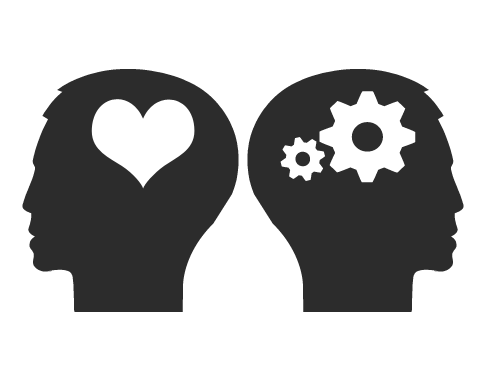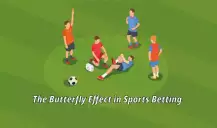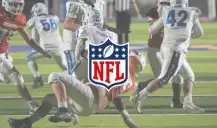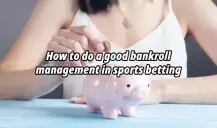
If we manage to temper our work method and cognitive knowledge with an excellent emotional control, we are on our way to success.
This article is a short reflection about the importance of the Emotional intelligence on a trader's life.
When we say that someone is intelligent, we are normally referring to their rational intelligence (cognitive capacities) which is tangible, measurable and server as the basis to most of our decisions.
Although a lot of times neglected or even unknown, emotional intelligence is what allows us to keep a Positive Expected Outcome in everything we do in our lives.
What is Emotional Intelligence?
Emotional intelligence represents the capacity to join emotion and rationality: using emotions to facilitate reason and intelligently think about them.
To be a great leader one must have both emotional and social competencies. The leaders who have a good emotional intelligence tend to be more successful and go further in their careers.
Citing Bezos's article at the betting academy: “Living off Trading”:
«As with everything in life, succeeding on betfair takes a lot of work, study and dedication. Because of that the idealization, construction, implementation and testing of a method will require many sleepless nights, a lot of calculation, endless pondering and lots of headaches. Don't be misled, there's no such thing as easy money!»
We can assume without much controversy that young students or professionals of the engineering, economy or management areas have the required cognitive faculties to, if combined with a taste for the sporting world, be successful in the Trading art.
Specially those of us that were born in the nineties (also 60s, 70s and 80s), that grew up playing football on the streets and at school with our friends and, come weekend, followed our favourite team with our fathers and grandfathers. All this allows us to have enough knowledge of the sport to be considered a "stands coach".
There is however a "CSV" (Critical Success Variable) that can validate or destroy without appeal the winning combination that I highlighted in the last paragraph: the emotional control of the involved parties when facing all of the events that a football game may entail.
The butterflies in the stomach we get when a team is dominating the match, creates goal opportunities every 5 minutes but, out of nowhere, a fast counter from the "underdog" ends up inside the nets.
In this case I'm sure that more than 90% of bettors will "freeze" and only 10% will be able to do the right thing and act in a cold and rational fashion without being affected by their emotions.
Consider that the sample used for the above example was composed of potential trader with the correct cognitive profile to be considered "ideal traders".
A small analogy.
Someone set for themselves the goal of, within 12 years, making a name for himself and build a career on the management area being the general manager of a company of medium to large revenue.
He knew that the only chance for this to happen was if the results he got were recognized and valued by the market. With this he would get new work offers that would allow him to change companies grabbing higher ranked functions when compared to those he performed before. This should happen 3 or 4 times.
Sure enough, after 8 years, this individual achieved his medium-long term objectives and was nominated manager of a medium sized company, being recognized 2 years after as one of the most successful managers in the field. These achievements were recognized by fellow managers and specialized press alike.
His ego was inflated like a "hot air balloon".
Sometime after he went into litigation with the European board of the company he managed and, as he knew of his standings and reputation within the market, thought that he could afford to drag the case out on the courts for several years turning down several job offers.
The full attention of this individual was on the fact that another court had the opinion that he had the case won.
The end of this tale is easy to predict, no one is unrepleaceable and life always goes on.
In this case, the possibility for this man to go back into a market where his merits were recognized closed for good.
All of this because he let his emotions decide his actions.
This was an example of someone that, despite having an above average rational intelligence, was lacking the emotional intelligence required to manage his expectations and realities into a Positive Expected Value outcome.
Applying these considerations to football Trading.
I've come into contact with this activity approximately 5 months ago. I knew of the possibility of developing this activity as a future long lasting financial strategy, I have followed and played sports since my first teeth came out. I love football and consider myself an excellent "stands coach".
In a short time period I've already tested 2 or 3 softwares, read all of PR's books and, following a lot of the advices I picked up along the way, worked on more than 500 matches with all the imaginable profiles.
I've concluded that I might be able to continue my path as long as the motives or actions that led me to lose some of my banks do not occur again.
I came to this conclusion after analysing the reasons that made me lose the total profit of over 100 games in only 15 minutes, it was crystal clear to me right there that if I am not able to control my emotions I will surely not persist on an activity that has a probable negative monetary outcome.
So, after a lot of research, I found several different theories concerning emotional intelligence and its influence on professionals that are regularly exposed to decision making situations where stress may have a huge influence on the final result.
Below I give you the main questions that, from my point of view, a prospective trader must focus on:
1. How to improve your emotional intelligence: Dealing with negative emotions
Controlling our own negative emotions is key to maintaining emotional balance. You cannot let a negative occurrence (getting hit with a red for instance) take control of your attitudes or influence your thoughts, on the contrary, negative emotions must be kept in check, never going over the edge.
2. How to improve your emotional intelligence: Dealing with pressure
All of us have stressful moments, the way we deal with those moments is what separate us. A person that deals with stress by searching for logical and balanced solutions is called assertive. If, on the other hand, that person is dominated by his/her emotions, he/she is called reactive. In Trading we do not want to be reactive because the influence of emotions leads to irrational decisions and a much greater probability of losses.
3. How to improve your emotional intelligence: Interprete other people's emotions
A trader that is able to improve his own emotional intelligence will be able to identify the small nuances that other people's emotions let through and take advantage accordingly. You can, for instance, read facial expressions and the body language of players and coaches and discern what that might bring to the match you are working.
In summary: Recognizing the importance of Emotional Intelligence.
With a simple Wikipedia search you will find that only in 1983, Howard Gardner, on his multiple intelligence theory, introduced the concepts of intrapersonal intelligence (ability to understand oneself and our own feelings, fears and motivations) and interpersonal intelligence (ability to understand the motivations, intentions and desires of others).
To Gardner, simple indicators like the IQ do not fully explain our cognitive capabilities.
So, although the names given to these concepts have varied, it is widely believed that the traditional definition of intelligence does not cover the full spectrum of its characteristics.
The concept of emotional intelligence was developed by Daniel Goleman and, according to his analysis, this is definitely the characteristic that explains why some results driven professionals are highly successful.
Segundo Goleman a inteligência emocional pode até ser responsável pelo sucesso ou insucesso dos indivíduos.
The two main indicators are:
- knowing if the professional has an accurate self-evaluation, he must have the capability of knowing himself as best as possible;
- composure, the ability to deal with tricky situations with a calm demeanour;
A professional that possesses an above average emotional intelligence, is recognizable by keeping his composure when facing stressful situations and by being more tolerant when presented with an ambiguous set of facts.
Summarizing, I believe it to be consensual after reading this article that we are facing a relatively new definition of an abstract concept but still, a concept that is easily understandable as a very important factor on an activity full of anxiety, fears and stressful moments, where we quickly tend to qualify our losses and bad calls as "bad luck".
If we manage to temper our work method and cognitive knowledge with an excellent emotional control, we are on our way to success.
Looking forward to your comments and opinions through our forum.




